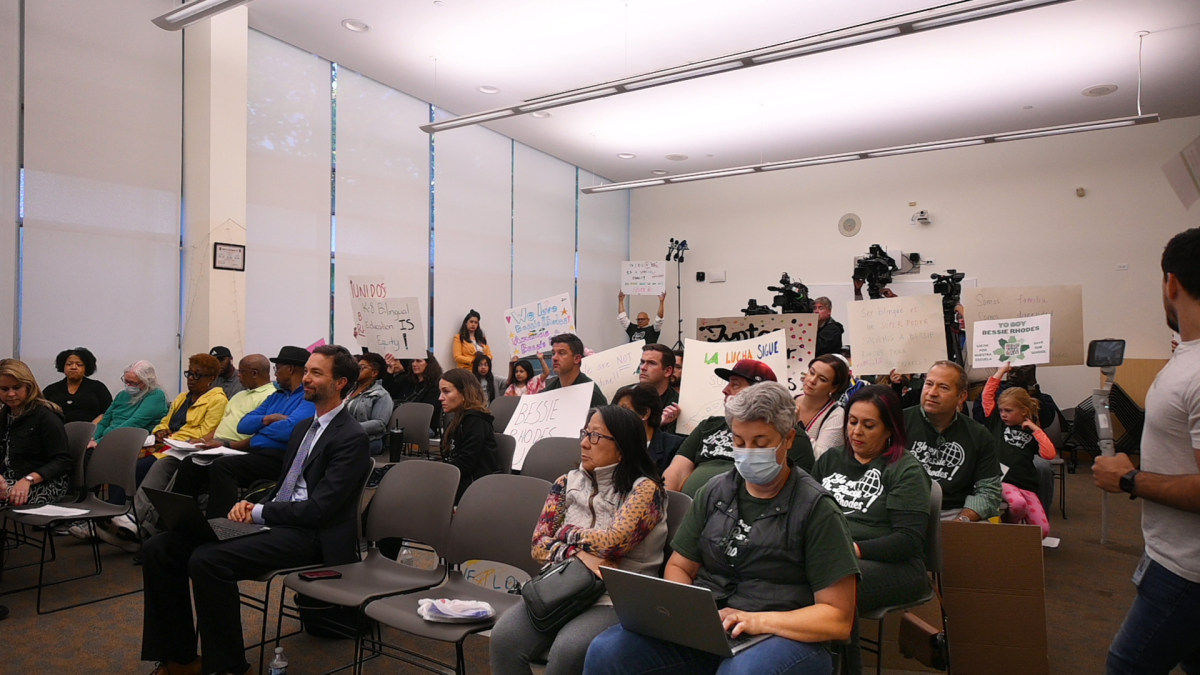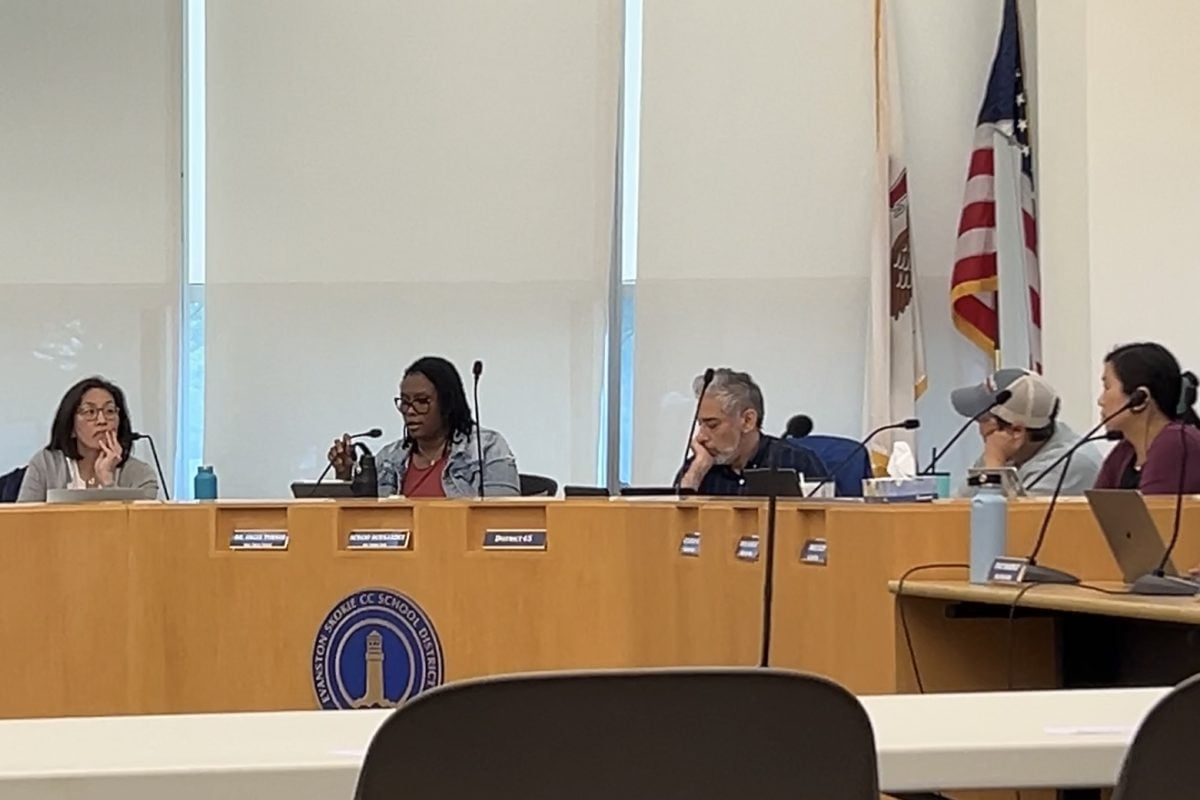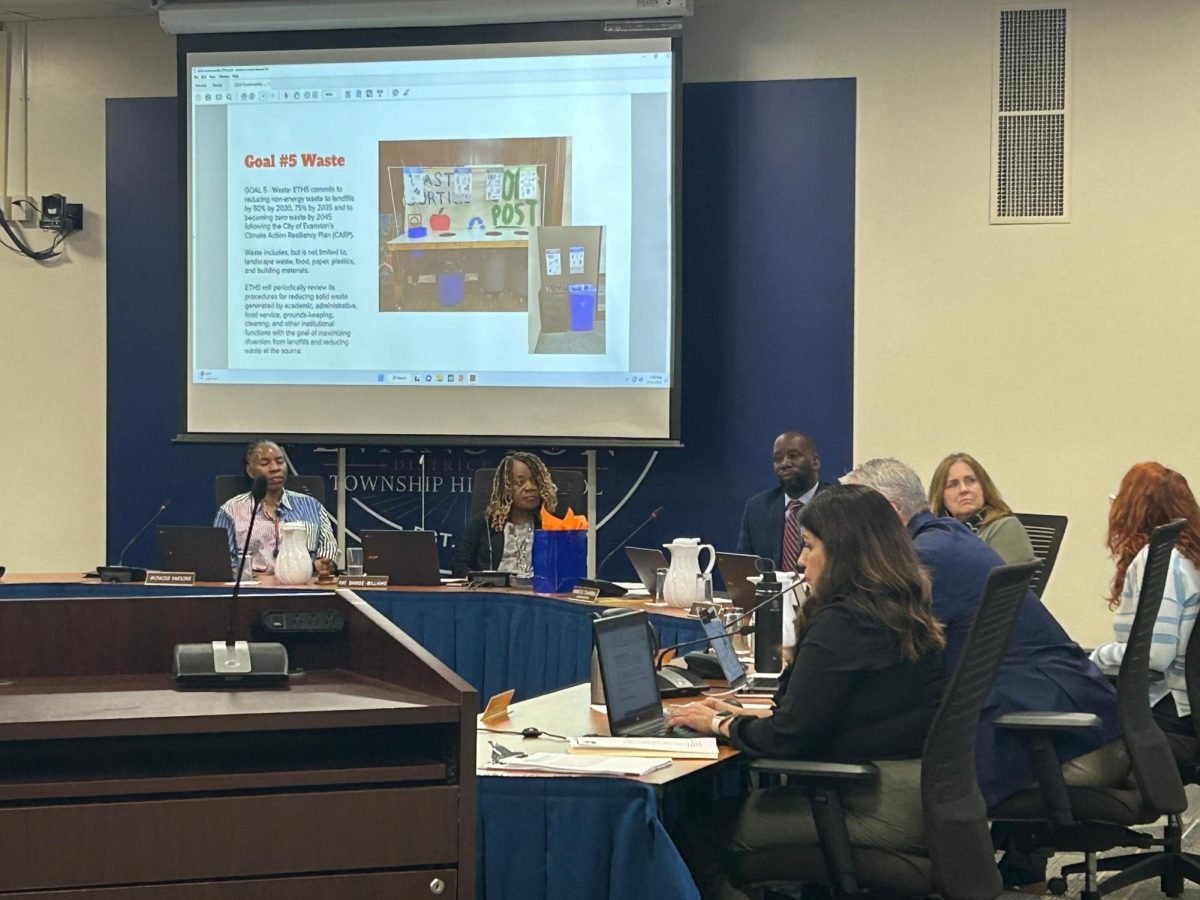The Evanston Township High School District 202 Board of Education discussed student access and performance in AP and dual-credit courses along with efforts to address racial disparities in literacy and numeracy levels during its meeting Monday night.
Assistant Superintendent for Curriculum and Instruction Pete Bavis outlined levels of student participation and performance in ETHS’ early college program, which includes AP courses at the school and dual-credit courses offered with Oakton College.
In 2023, 74% of students taking an AP exam at the school scored at least 3 out of 5. This rate was 83% higher than ETHS’ equivalent rate in 2007 and was higher than last year’s national average, according to Bavis.
“The bottom line is that we have significantly more students graduating with AP scores of 3+ and 4+ than ever before,” Bavis said.
ETHS’ efforts to make the tests more accessible to students include covering the $25 enrollment fee for all students enrolling in dual-credit courses. The school also streamlines the registration process for those courses.
Students will also be able to enroll in a four-course sequence on artificial intelligence and machine learning starting in the spring of 2024 through a concurrent enrollment program with Oakton. The program received an Illinois Community College Board Trades School grant.
Board member Leah Piekarz noted the lower percentage of students scoring 3 or higher on the AP Calculus AB exam. Dale Leibforth, mathematics department chair and AP success manager at ETHS, said the school has revised its 2 Algebra curriculum and rolled out an AP Precalculus course to better prepare students for the more advanced content.
While updating the board on student rates of literacy and numeracy — which measure proficiency in language and mathematics, respectively — Bavis said the school uses an equity index to proportionally measure different subgroups’ performances relative to the school’s overall average.
This measure prevents comparing different subgroups’ rates side-by-side, a practice Bavis said he wanted to avoid. Instead, the index compares subgroups’ performance with the overall average. The school adapted the index from one used at the University of Southern California.
ETHS equates equity index values at or above 1 with performance “at or above equity” and values below 0.5 with performance “far below equity.”
By these standards, the results achieved by Black students on the ninth-grade STAR reading assessment reflect inequitable performance gaps between racial groups, as do the results of Black and Latine students on the 11th-grade SAT Math assessment.
To address these performance disparities, the school is providing interventions and supports for students in 1 Algebra and Geometry Support, including smaller class sizes, multiple teachers inside classrooms and individualized instruction for students. ETHS will also revise its ninth-grade math placement criteria for the 2024-25 school year.
Board member Mirah Anti said the district could use an equity index comparing subgroups to the highest-performing group, as opposed to the overall average.
“We want to understand who’s four times more likely to earn an A or two times more likely to earn an F,” she said.
Before the meeting, the board’s Policy Committee reviewed draft policies on sustainability and acceptable uses of personal technology and social media. The board will approve the updates to those policies, among others, at a future meeting.
Several community members spoke in support of the draft policy on sustainability, including ETHS junior Jexa Edinberg.
“The idea of sustainability has been supported as a left-wing ideology, when in reality, sustainability helps everyone, including those affected by climate change,” Edinberg said. “Sustainability transcends politics.”
Email: [email protected]
Related Stories:
— District 202 board discusses Year in Review report, student equity
— City-School Liaison Committee discusses support for health and safety
























